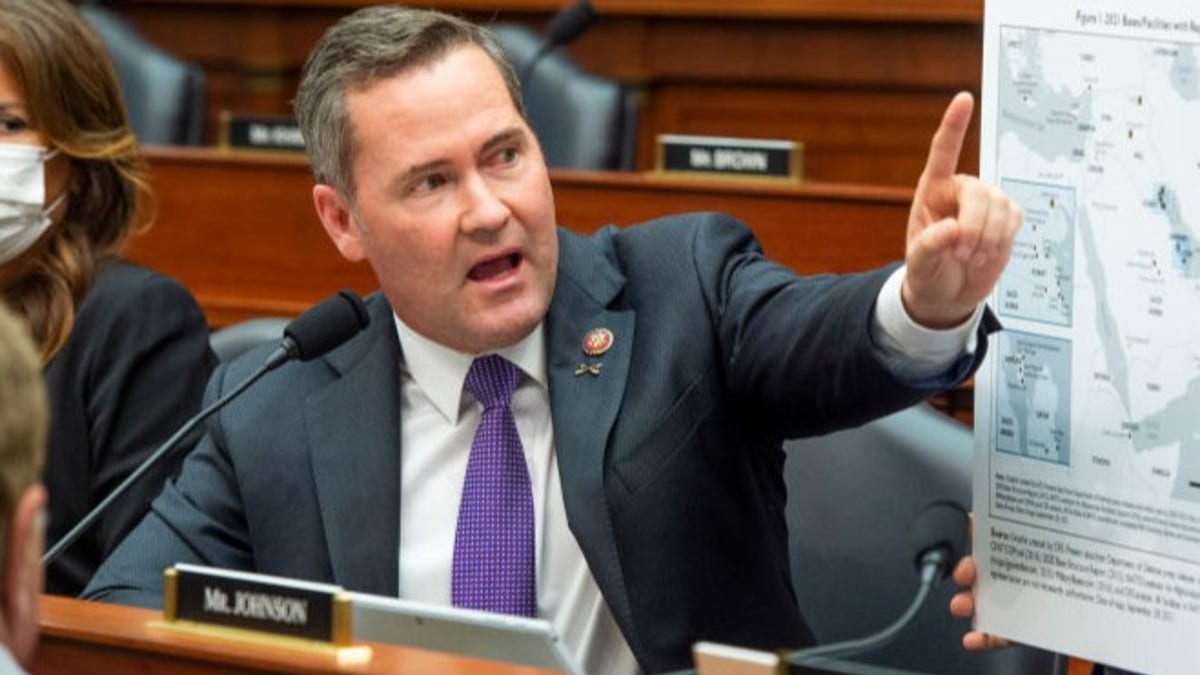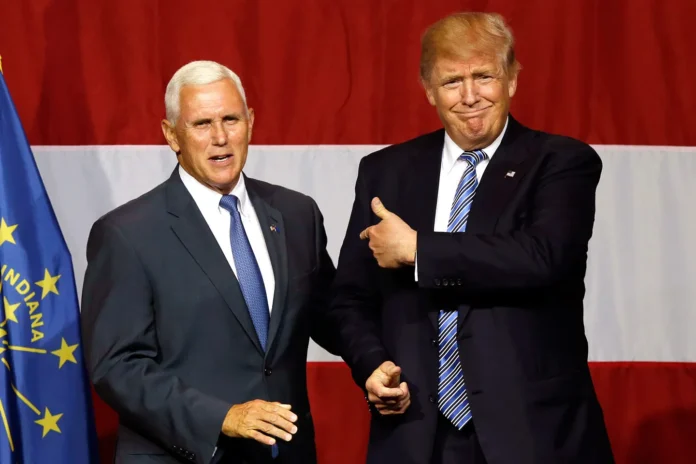Mike Waltz, a Florida representative and former Army Green Beret, has been tapped by President-elect Donald Trump as his national security adviser, setting a strong stance on China and reshaping the nation’s security approach.
A Controversial Pick with a Tough Stance.
President-elect Donald Trump has chosen Florida representative Mike Waltz as his national security adviser, a decision that aligns with Trump’s foreign policy direction and promises a tougher U.S. stance on China. Waltz, a former Army Green Beret and prominent critic of China, is expected to play a pivotal role in shaping the nation’s security strategy, working closely with Trump to address key national and global security issues.
A Trusted Trump Ally with Extensive Military Experience.
Waltz’s background, both in Congress and the military, has earned him a reputation as a firm advocate for American strength on the global stage. Serving as a former National Guard colonel, Waltz is recognized for his pragmatic approach to foreign policy and his allegiance to Trump’s agenda. With experience as a defense policy director under former Defense Secretaries Donald Rumsfeld and Robert Gates, Waltz brings to the table extensive expertise in military strategy and interagency coordination. His close alignment with Trump’s disruptive style and criticisms of what he sees as outdated Pentagon practices have garnered him favor within Trump’s team. As Waltz himself remarked, “Disruptors are often not nice … frankly, our national security establishment and certainly a lot of people that are dug into bad old habits in the Pentagon need that disruption.”

A Strong Stance on China.
One of the defining features of Waltz’s policy stance is his firm position against China’s growing influence. As a vocal member of the Republican China Task Force, Waltz has consistently raised alarms about China’s activities in the Asia-Pacific region, underscoring the need for U.S. military readiness in potential conflicts. Waltz sees China as a looming threat, and his stance echoes Trump’s skepticism about the nation’s intentions. In his recent book, *Hard Truths: Think and Lead Like a Green Beret,* Waltz elaborates on his strategy to deter conflict with China, emphasizing the necessity for the United States to “think like a Green Beret”—combining adaptability with decisiveness to confront emerging challenges.
This stance reflects the strategic shift expected under Trump, as he seeks to counterbalance China’s growing military and economic influence. Waltz’s appointment suggests that the Trump administration will prioritize policies that not only address traditional allies but also confront adversarial challenges in the Indo-Pacific region with unprecedented vigor.
Changing Positions on Ukraine and NATO.
Waltz’s perspective on other international issues, notably Ukraine and NATO, has shown both adaptability and divergence from Trump’s approach. Initially supportive of increased U.S. military aid to Ukraine following Russia’s invasion in 2022, Waltz has recently become more reserved, advocating for a strategic re-evaluation of American commitments abroad. Questioning the nation’s priorities, he pondered, “Is it in America’s interest, are we going to put in the time, the treasure, the resources that we need in the Pacific right now badly?”
His position on NATO also demonstrates both alignment and independence. While Trump has frequently criticized NATO and questioned its relevance, Waltz supports U.S. involvement in the alliance, though he agrees with Trump on the importance of increased defense spending from NATO member states. “Look, we can be allies and friends and have tough conversations,” he has commented, striking a balance between cooperation and firmness.

Role and Influence as National Security Adviser.
The role of national security adviser does not require Senate approval, granting Trump a free hand in his appointment. In this capacity, Waltz will wield considerable influence, briefing the president-elect on national security threats and coordinating between federal agencies. With Waltz’s appointment, Trump can anticipate a more streamlined approach to implementing his foreign policy priorities.
Waltz’s views are anticipated to have a significant impact on both Trump’s cabinet and the broader U.S. strategic landscape. His critiques of the Biden administration’s 2021 Afghanistan withdrawal underscore his belief in a more assertive and cohesive approach to foreign intervention. Waltz argued that the withdrawal was indicative of larger systemic failures within the U.S. national security apparatus—failures he intends to rectify.
Implications for U.S. Foreign Policy under Waltz.
Waltz’s appointment signals a sharp shift in the U.S. national security landscape, especially regarding the Indo-Pacific region and the approach to global alliances. Trump’s choice underscores his intent to reinforce a hardline stance on China while also maintaining strategic flexibility in other areas of global concern, such as NATO and Ukraine.
Furthermore, with Waltz at the helm, there is likely to be a reassessment of American military priorities, particularly in resource allocation and readiness in the Pacific. Waltz’s experience and forward-thinking strategies align with Trump’s “disruptive” style of governance, aimed at challenging longstanding practices within the U.S. defense and security institutions.
A Potentially Pivotal Role in Reshaping U.S. Security.
Mike Waltz’s new role as national security adviser represents not just a continuation of Trump’s foreign policy aims but an intensification of its key components. His expertise in military affairs, coupled with his alignment with Trump’s stance on China, suggests that the U.S. may soon adopt a more confrontational posture in the Asia-Pacific. At the same time, Waltz’s perspectives on Ukraine and NATO reflect a nuanced approach that could moderate some of Trump’s more controversial views on American alliances.
In sum, Waltz’s appointment underscores Trump’s commitment to a robust national defense strategy that prioritizes American interests in a rapidly evolving global landscape. As the new administration prepares to take office, the implications of Waltz’s appointment could lead to a redefined U.S. presence on the world stage.

